Marine Veteran Ben Fortier Parses the Nuances of Combat in a New Book
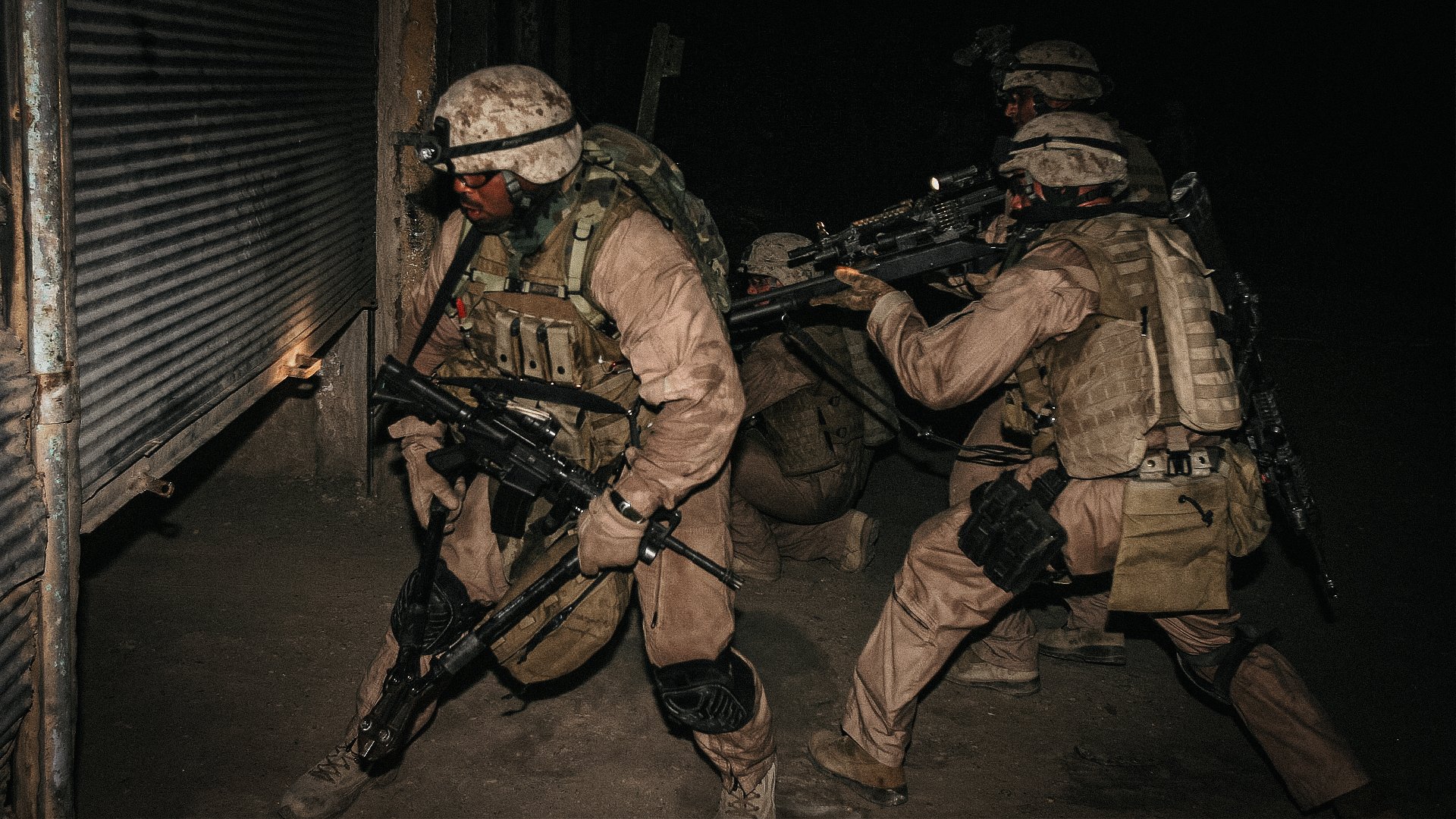
Marines with 1st Battalion, 25th Marine Regiment, conduct a raid on a possible suicide vehicle bomb workshop in Fallujah, May 2006. US Marine Corps photo by Cpl. Brian Reimers.
It took Ben Fortier years to realize that he had been writing poetry since he was a child. Long before he ever thought of himself as a poet — before he joined the Marine Corps and fought in Fallujah, Iraq — he had been scribbling verse in the form of song lyrics. It was only after the military that Fortier started writing poems without the accompaniment of a guitar.
Now, Fortier is the author of three poetry collections. His most recent, Phantoms, tackles the complexities of combat and the often contradictory emotions that come with being a warrior. Coffee or Die sat down with Fortier to discuss his time fighting in one of the deadliest battlegrounds of Iraq, his transition from mortarman to poet, and his latest book.
This interview has been edited for length and clarity.
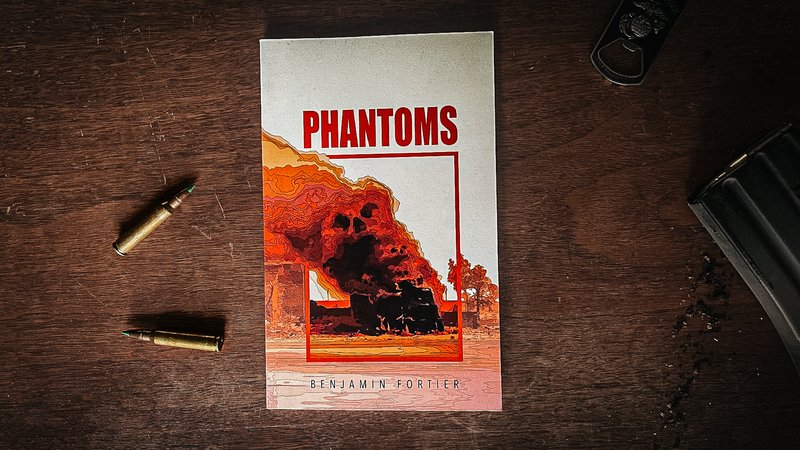
Phantoms is Ben Fortier's third poetry collection. Photo by Mac Caltrider/Coffee or Die.
COD: Your poetry is largely influenced by your experience in Iraq. What was it like to serve in Fallujah in 2006?
BF: Iraq was a culture shock. I came from a pretty rural background in Rhode Island, and I’d expected Iraq to be a desert with some shanties or palm groves. I wasn’t expecting massive developed cities. I got there 18 months after Phantom Fury, and it was fairly quiet at first. It wasn’t until a few months into the deployment that things started ramping up. There was an Abu Ghraib prisoner release while we were there, and all of those prisoners came to either Ramadi or Fallujah. They brought more-advanced tactics with them. For example, instead of hitting the side of our trucks with an IED, they started burying mines that blew up underneath and would literally rip vehicles from the inside out. They began to initiate ambushes with mines, then follow up with a machine gun or rocket team. We started losing Marines, and it became much more real.
COD: Were you prepared for that kind of combat?
BF: We were expecting a lot of IEDs, so that’s what we trained for. The overarching strategy was counterinsurgency, but my commander was a Phantom Fury veteran and had a more aggressive mindset. We were being told to win hearts and minds, but things were different on the ground. We were just trying to survive. Iraq taught the same hard lessons that we learned from Vietnam, but on the ground, we were very aggravated that all we could do was react. We had very little opportunities to do direct action.
Related: Animal Mother and the Duality of Man in ‘Full Metal Jacket’
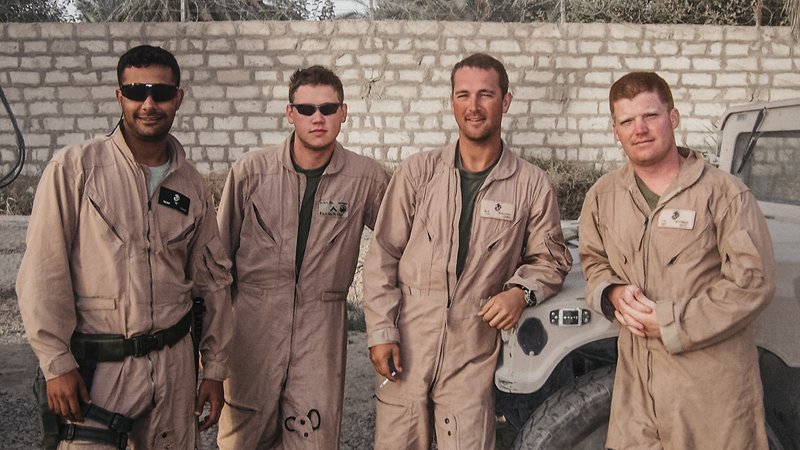
Ben Fortier, second from left, in Fallujah. Photo courtesy of Ben Fortier,
COD: Your new book, Phantoms, is entirely focused on war. Why?
BF: This was the first book that I wanted to be cover-to-cover about war — in particular, the Global War on Terror. My first two books more closely resemble anthologies. I selected 60 to 70 of the poems I liked most and compiled them into those two. Phantoms was much more deliberate and focused. A lot of the poems are from my deployment to Fallujah, but there are others that branch out to other parts of the GWOT. There are some about Afghanistan, though I’ve never been to Afghanistan, and some about Special Operations, though I never served in Special Operations. But together, they tell a larger story.
My first two books were also self-published, but Phantoms is being published through veteran-owned publisher Dead Reckoning Collective (DRC). Since DRC was founded in 2017, they’ve been spreading a message that war is a complex beast. The individual combatant has many complex emotions and feelings about what they’re doing and why they’re doing it. It’s so much more than the clear, cut-and-dried picture we often see. DRC has an amazing grip on how to deliver an authentic message from the GWOT generation.
Related: In ‘Freedom,’ Sebastian Junger Says US May Be on a Collision Course With Itself
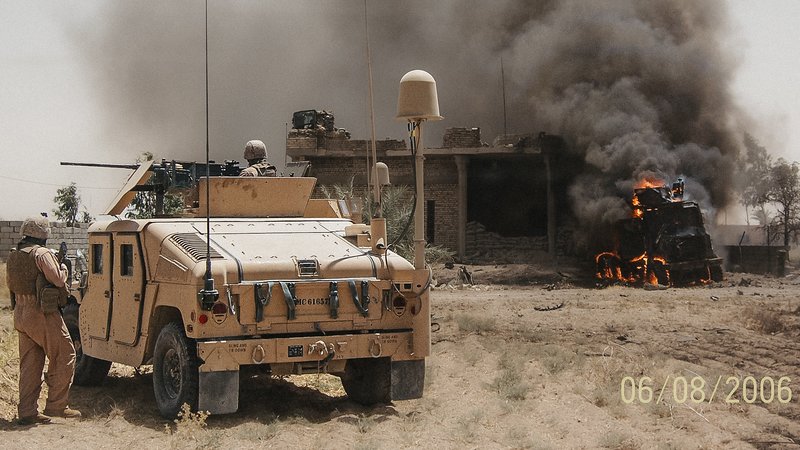
An American truck destroyed by an IED burns on the outskirts of Fallujah, Iraq. Photo courtesy of Ben Fortier.
COD: The picture of war you paint in Phantoms is not cut-and-dried. Can you describe some of the contrasting emotions you write about?
BF: I have incredibly complex feelings toward the military, the GWOT campaigns, and our foreign policy. On one hand, US troops are out doing extraordinary humanitarian work, but on the other hand, we have instances of really horrific crimes. And there have also been tragedies like the cover-up surrounding Pat Tillman’s death. With Phantoms, I tried to explore that kind of duality in my own way through poetry. I don’t think they can be summarized eloquently without addressing those dualisms and paradoxes.
COD: Do you feel like poetry is the best medium to examine those paradoxes?
BF: Poetry is the distilled, digestible version of our feelings. Other writers could sit down and write an incredibly well-researched book about soldiers’ and veterans’ feelings, but I wanted to capture the essence rather than something tangible. Poetry allows me to tell a story without taking 3,000 words to do it. A short poem can hit just as hard as a book if you phrase it appropriately, using the right cadence and literary tools.
Phantoms will be available for purchase through Dead Reckoning Collective later this year.
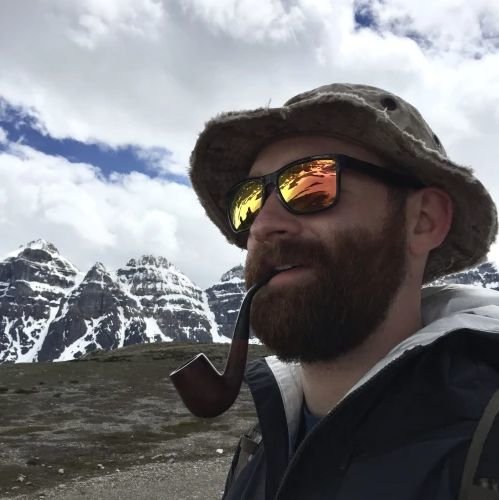
Mac Caltrider is a senior staff writer for Coffee or Die Magazine. He served in the US Marine Corps and is a former police officer. Caltrider earned his bachelor’s degree in history and now reads anything he can get his hands on. He is also the creator of Pipes & Pages, a site intended to increase readership among enlisted troops. Caltrider spends most of his time reading, writing, and waging a one-man war against premature hair loss.
BRCC and Bad Moon Print Press team up for an exclusive, limited-edition T-shirt design!
BRCC partners with Team Room Design for an exclusive T-shirt release!
Thirty Seconds Out has partnered with BRCC for an exclusive shirt design invoking the God of Winter.
Lucas O'Hara of Grizzly Forge has teamed up with BRCC for a badass, exclusive Shirt Club T-shirt design featuring his most popular knife and tiomahawk.
Coffee or Die sits down with one of the graphic designers behind Black Rifle Coffee's signature look and vibe.
Biden will award the Medal of Honor to a Vietnam War Army helicopter pilot who risked his life to save a reconnaissance team from almost certain death.
Ever wonder how much Jack Mandaville would f*ck sh*t up if he went back in time? The American Revolution didn't even see him coming.
A nearly 200-year-old West Point time capsule that at first appeared to yield little more than dust contains hidden treasure, the US Military Academy said.












